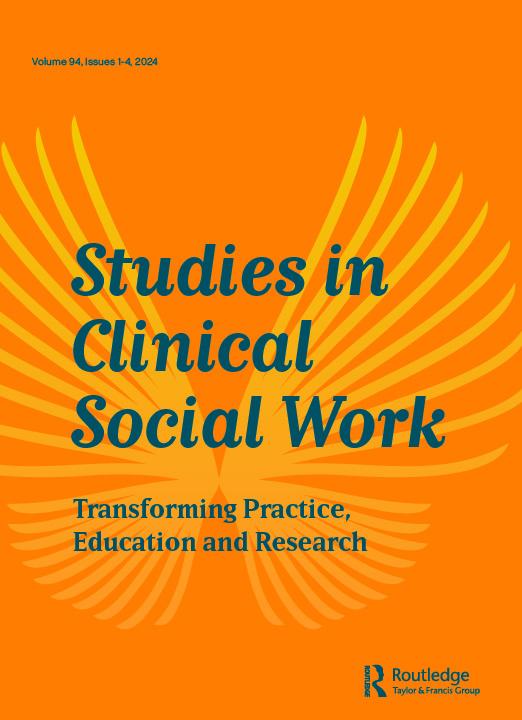
Editorial Team
Editor-in-Chief: Kenta Asakura
Editorial Assistant: Maria Maldonado-Morales
About the Journal
Formerly known as Smith College Studies in Social Work (Smith Studies) the journal was founded in 1930 by Smith College School for Social Work (SSW) in Northampton, MA. Founded in 1918, Smith SSW is the nation’s first psychiatric (clinical) social work program and has since been a leader of graduate training in clinical social work. Over its long and distinguished history, the journal has contributed significantly to the development of clinical knowledge, having published manuscripts by a wide range of influential social work thinkers and practitioners.
As a peer-reviewed publication, the Studies in Social Work advances the School for Social Work's mission and serves as the School's voice within the larger professional community. The journal publishes manuscripts on all aspects of clinical social work theory and practice, emphasizing topics that are of particular interest to the faculty and that complement curricula initiatives. In recent years, published manuscripts have discussed emerging theoretical paradigms, research and policy issues relevant to direct practice, therapeutic process, clinical teaching, supervising practice, culturally and racially attuned therapeutic work with diverse client populations and international reports on practice.
In 2024, under the leadership of Kenta Asakura, M.S.W. '04, Ph.D., LICSW, the journal was renamed to Studies in Clinical Social Work: Transforming Practice, Education and Research to identify ways to more accurately represent the journal's identity and vision as a leading journal of clinical social work. Despite the name change, the journal's core identity did not change. It remains focused on and committed to clinical social work and will continue its affiliation with Smith College School for Social Work. As the new title signifies, the journal focuses not only on clinical practice but also on clinical education and research from the social work community.
Aim and Scope
Continuing its leadership in and commitment to advancing the field of clinical social work, Studies in Clinical Social Work: Transforming Practice, Education and Research is a refereed journal that serves as a forum for clinicians, social work educators, practicum instructors, and researchers to share high quality work that critically engages and advances knowledge and practice of clinical social work. The journal has a renewed commitment to publishing critical work that reflects implications for promoting racial and social justice within a clinical process as well as advancing practice with individuals, families, and small groups in oppressed and marginalized communities. The journal welcomes submissions of empirically sound research of all types of methodology (i.e., quantitative, qualitative, mixed-methods, review methods). The journal also welcomes conceptual work (e.g., theoretical, case studies) that introduces innovative practice approaches or pedagogical practice and/or helps advance clinicians’ commitment to racial and social justice in a practice context. Arguments made in the articles must be grounded in relevant literature and contribute to advancing the field of contemporary clinical social work.
Peer Review Policy: All papers published in this journal have undergone editorial screening and double-anonymous peer review.
Studies in Clinical Social Work: Transforming Practice, Education and Research is published by Taylor and Francis.
Smith College Studies in Social Work: Towards “Decolonizing” Clinical Social Work Practice & Education
“Narratives of Uprooting Anti-Black Racism in Higher Education: Developing a Power, Race, Oppression, and Privilege Framework in Social Work”
The PROP Collective, Columbia University School of Social Work
“From the Margins to the Center: Cultivating Collective Healing with Soulcial Work Praxis”
Alexis Jemal, Diana Melendez, Olivia Hunte, Diana Ballesteros, & Gita R. Mehrotra
“Decolonizing Mental Health/Social Work Practice in Uganda: Reconstructing an African-centric Framework Through Traditional Values and Beliefs”
Hugo Kamya
“Toward Decolonizing the Social Work Practicum: From a Practicum Director’s Perspective”
Kanako Okuda
“Colorism and Historical Trauma: Barriers and Stepping Stones for Healing within Clinical Social Work Education”
Anna Ortega-Williams, Jandel Crutchfield, J. Camille Hall & Aundraea Brown
“Two Sides of the Same Coin: Adopting a Decolonial Stance in Teaching Clinical Social Work Students to Intervene on Anti-Black Racism”
LaTasha Smith & Carolyn Mak
“Liberating Social Work Education Through Decoloniality”
Lisa Werkmeister Rozas
“Decolonizing Social Work Education and Practice with Students and Community Stakeholders: A Case Example from University of Calgary”
Régine Uwibereyeho King, Liza Lorenzetti, Jeff Halvorsen, Maimuna S. Khan & Lemlem Haile
“Wade in the Water: Suggestions for Centering Reproductive Justice in Social Work Education, Practice, and Organizing”
Brandyn-Dior McKinley, Loren Cahill & Shveta Kumaria
“Towards a Black Love and Care Ethic: Reimagining Social Work through Black Technologies”
Keshia (Kay) Williams
“Creating Spaces for Decolonization and Indigenization Among Mental Health Professionals in Higher Education”
L. D. McCubbin, M. A. Town, A. Burns-Glover & E. M. Butay
“Decolonizing School Social Work Practice: The Delicate Dance Around Power, Privilege and Oppression”
Carolyn Mak
“Translating Critical Social Work into Clinical Practice: A Pilot Simulation-Based Study from Canada”
Kenta Asakura, Ruxandra M. Gheorghe, Sarah Tarshis & Katherine Occhiuto
